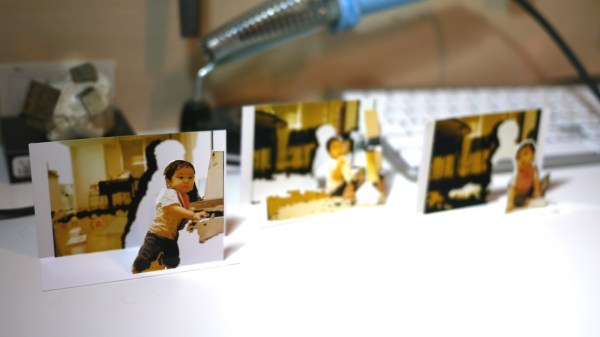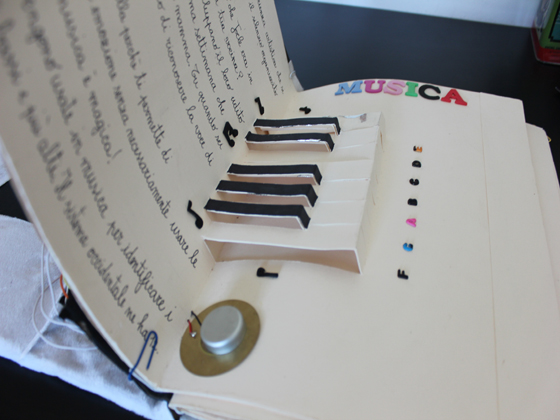The world of 3D printing is growing rapidly. Some might say it’s growing layer by layer. But there was one aspect that [Ken] wanted to improve upon, and that was in the area of 3D photos. Specifically, printing a 3D pop-up-style photograph that collapses to save space so you can easily carry it around.
It’s been possible to take 3D scans of objects and render a 3D print for a while now, but [Ken] wanted something a little more portable. His 3D pop-up photographs are similar to pop-up books for children, in that when the page is unfolded a three-dimensional shape distances itself from the background.
The process works by taking a normal 3D photo. With the help of some software, sets of points that are equidistant from the camera are grouped into layers. From there, they can be printed in the old 2-dimensional fashion and then connected to achieve the 3D effect. Using a Kinect or similar device would allow for any number of layers and ways of using this method. So we’re throwing down the gauntlet — we want to see an arms-race of pop-up photographs. Who will be the one to have the most layers, and who will find a photograph subject that makes the most sense in this medium? Remember how cool those vector-cut topographical maps were? There must be a similarly impressive application for this!
[Ken] isn’t a stranger around these parts. He was previously featured for his unique weather display and his semi-real-life Mario Kart, so be sure to check those out as well.













